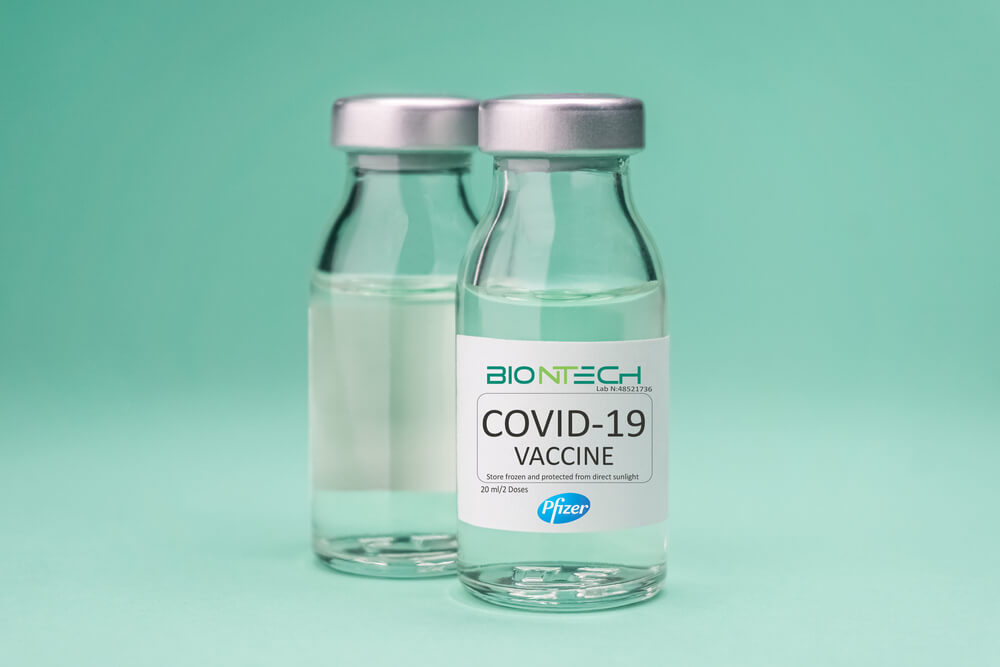



Get new exclusive access to healthcare business reports & breaking news




Pfizer Inc. and BioNTech SE, producers of the most sought after anti-COVID-19 vaccines, announced on February 19th the submission of new data to the U.S. Food and Drug Administration (FDA) proving the stability of their COVID-19 vaccine when stored at -25°C to -15°C (-13°F to 5°F), temperatures pharmaceutical freezers and refrigerators are more commonly able to sustain.
The documents submitted to the FDA include stability data generated throughout the past nine months since the vaccine is being developed, from the batches supplied for the earliest clinical trials to the commercial-scale lots currently being produced. This data will also be submitted to global regulatory agencies within the next few weeks.
“We have been continuously performing stability studies to support the production of the vaccine at commercial scale, with the goal of making the vaccine as accessible as possible for healthcare providers and people across the U.S. and around the world,” said Albert Bourla, Chairman and Chief Executive Officer, Pfizer. “We appreciate our ongoing collaboration with the FDA and CDC as we work to ensure our vaccine can be shipped and stored under increasingly flexible conditions. If approved, this new storage option would offer pharmacies and vaccination centers greater flexibility in how they manage their vaccine supply.”
The data has been submitted to the FDA to support a proposed update to the U.S. Emergency Use Authorization (EUA) Prescribing Information, which would allow for vaccine vials to be stored at these temperatures for a total of two weeks as an alternative or complement to storage in an ultra-low temperature freezer.
Currently, according to the labels for the Pfizer-BioNTech COVID-19 vaccine, including the EUA label in the U.S., the vaccine has to be stored in an ultra-cold freezer at temperatures between -80ºC and -60ºC (-112ºF to ‑76ºF). Under these conditions, it can remain stored for up to 6 months. To be shipped, the serum vials are put in a specially-designed temporary storage thermal container, which can be refilled with dry ice every five days, to extend the period of use up to 30 days.
Before mixing with a saline diluent, the vaccine may also be refrigerated for up to five days at standard refrigerator temperature, between 2⁰C and 8⁰C (36⁰F and 46⁰F).
If approved, the option to store at -25°C to -15°C (-13°F to 5°F) for two weeks would be in addition to this five-day option to store at standard refrigerator temperature. According to indications, the vaccine is administered at room temperature by medical staff.
“Our top priority was to quickly develop a safe and effective vaccine and make it available to the most vulnerable people in the world in order to save lives. At the same time, we have continuously collected data that could enable storage at around -20°C. The data submitted may facilitate the handling of our vaccine in pharmacies and provide vaccination centers an even greater flexibility,” said Ugur Sahin, CEO and Co-founder of BioNTech. “We will continue to leverage our expertise to develop potential new formulations that could make our vaccine even easier to transport and use.”
It has been a little over a year since Drugmakers started working to develop a vaccine that could protect against the novel Coronavirus. And although developing the vaccine took a few months, having it approved by the FDA was another story. Gathering data to prove a vaccine works usually takes years, but the world did not have the luxury to wait so long for this one. So data regarding the coronavirus disease is very important for the vaccine developers, as Israel, which was among the very first states to vaccinate people against the disease, recently has proved, by making a deal with Pfizer. Israel will provide the pharmaceutical giant, which now has one of the most highly sought-after vaccines, with statistical data, and they will receive vaccines to immunize all its citizens.
The kind of information that Israel is expected to share with Pfizer includes the number of infection cases, the number of fatalities, as well as how many people have been vaccinated so far. Data regarding people that have suffered allergic reactions due to vaccination will also be shared. All data shared with Pfizer will also be available to the public.
As additional stability data are obtained, Pfizer and BioNTech anticipate the shelf life and/or expiration date could be extended, and alternate short-term temperature storage may be considered.
The vaccine, which is based on BioNTech proprietary mRNA technology, was developed by both BioNTech and Pfizer. BioNTech is the Marketing Authorization Holder in the European Union, and the holder of emergency use authorizations or equivalent in the United States, United Kingdom, Canada and other countries in advance of a planned application for full marketing authorizations in these countries.
The Pfizer-BioNTech COVID-19 Vaccine has not been approved or licensed by the U.S. Food and Drug Administration (FDA), but has been authorized for emergency use by FDA under an Emergency Use Authorization (EUA) to prevent Coronavirus Disease 2019 (COVID-19) for use in individuals 16 years of age and older. The emergency use of this product is only authorized for the duration of the declaration that circumstances exist justifying the authorization of emergency use of the medical product under Section 564 (b) (1) of the FD&C Act unless the declaration is terminated or authorization revoked sooner.